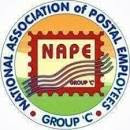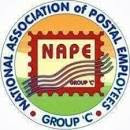Dept. Of Per & Trg O.K. 11012/6/2008-Estt/A 1.8.07
Sub: - Simultaneous action of prosecution in a court and initiation of departmental proceedings.
The undersigned is directed to refer to this M.H.A O.M.No. 39/30/54-Ests. Dated the 7th June 1955 and No. 39/8/64-Ests. dated the 4th Sept. 1964 on the above subject which state that prosecution should be the general rule in all cases which are found fit to be sent to Court and in which the offences are of bribery, corruption or other criminal misconduct involving loss of substantial public funds and that such cases departmental action should not precede prosecution. References are being received in this Department seeking the clarification as to whether departmental action can also be taken where the same matter has been taken up in a court of competent jurisdiction for prosecution of the Government servant concerned.
2. What may be deduced from the above instructions is that, in serious cases involving offences such as bribery/corruption, etc action should be launched for prosecution as a matter of course. The Hon’ble Supreme Court had held in their various judgments the important ones being State of Rajasthan v B.K.Meera and others {1996 6 SCC 417} Capt. M. Paul Anthony v Bharat Gold Mines Limited (1993 3 SCC 679), Kendriya Vidyalaya Sangathan and others v T. Srinivas (2004 (6) SCALE 467) and Noida Entrepreneurs’ Association v. Noida (JT 2007 (2) SC 620) that merely because a criminal trial is pending, a departmental inquiry involving the very same charges as is involved in the criminal proceedings is not barred. The approach and objective in the criminal proceedings and disciplinary proceedings are altogether distinct and different. In the disciplinary proceedings, the question is whether the respondent is guilty of such conduct as would merit his removal from service or a lesser punishment, as the case may be whereas in the criminal proceedings, the question is whether the offences registered against the Government Servant are established and if, established, what sentence can be imposed on him. In serious nature of cases like acceptance of illegal gratification, the desirability of continuing the concerned Government servant in service in spite of the serious charges leveled against him may have to be considered by the Competent Authority to proceed with departmental action.
3. However if the charge in the criminal case is of a grave nature which involves complicated questioned of law and fact, it would be desirable to stay the departmental proceedings till the conclusion of the criminal case. This will depend upon the nature of offence and the evidence and material collected against the Government servant during investigation or as reflected in the charge sheet. If the criminal case does not proceed or its disposal is being unduly delayed, the departmental proceedings even if they were kept pending on account of the pendency of the criminal case can be resumed and proceeded with so as to conclude them at an early date so that if the employee is found not guilty, the administration may get rid of him at the earliest if the case so warrants.
4. In the case of Hindustan Petroleum Corporation Ltd v. Sarvesh Berry (2004 (10) SCALE Page 340), it has been held in Para 9 that “it is not desirable to lay down any guidelines as inflexible rules in which the departmental proceedings may not be stayed pending trial in criminal case against the delinquent officer. Each case requires to be considered in the backdrop of its own facts and circumstances. There would be no bar to proceed simultaneously with departmental inquiry and trial of a criminal case unless the charge in the criminal trial is of grave nature involving complicated questions of fact and law. The Apex Court has referred to the conclusions given in Para 22 of Captain M. Paul Anthony’s case.
5. It is therefore, clarified that stay of disciplinary proceedings is not a must in every case where there is a criminal trial on the very same charges and the concerned authority may decide on proceeding with the departmental proceedings after taking into consideration the facts and circumstances of each case and the guidelines given by the Hon’ble Supreme Court as mentioned in the preceding paragraphs.
6. All Ministries/Departments are therefore requested to keep in view the above guidelines while dealing with cases of criminal misconduct of Government servants.
* Please Don't Spam Here. All the Comments are Reviewed by Admin.
Post a Comment
Featured Post
Top Post Ad
Below Post Ad
SIVAJI VASIREDDY

SECRETARY GENERAL, FNPO, CHQ New Delhi, & LSG Accountant, Sattenapalle HO - 522403, email: sivajivasireddy@gmail.com Mobile:9959538622
Total visitors till now
Search This Blog
Archive
Affiliated Unions
About Me
.jpeg)
- NAPE Group-C
- The NUPE Group-C was formed by Late Sri K.Ramamurti in 1968 then D.Kishan Rao was the General Secretary and now Vasireddy Sivaji is the present General Secretary
Regular Followers
Translate to Other Languages
Footer Copyright
Design by - Blogger Templates | Distributed by CopyBloggerThemes.com

.jpeg)
.jpeg)




